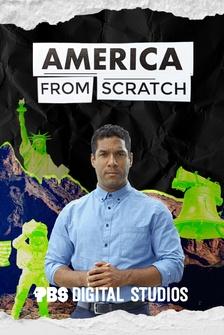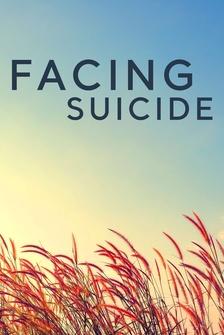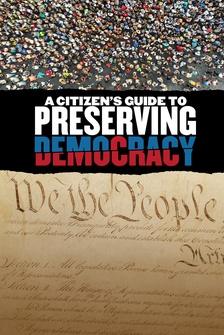AMNA NAWAZ: Robert F. Kennedy Jr., who has used his prominent platform to spread misleading and false claims about vaccine safety, is expected to play a big public health role in the next Trump administration.
When asked about vaccines in a podcast interview last July, Kennedy said this: QUESTION: Can you name any vaccines that you think are good?
ROBERT F. KENNEDY JR., Former Presidential Candidate: I think some of the live virus vaccines are probably -- solve -- averting more problems than they're causing.
There's no vaccine that is safe and effective.
AMNA NAWAZ: But, yesterday, the former Democrat who ran for president as an independent before endorsing Donald Trump said this in an interview with NBC: ROBERT F. KENNEDY: If vaccines are working for somebody, I'm not going to take them away.
People ought to have a choice, and that choice ought to be informed by the best information.
So I'm going to make sure the scientific safety studies and efficacies are out there, and people can make individual assessments about whether that product is going to be good for them.
AMNA NAWAZ: We're joined now by Dr. Richard Besser, former acting director of the Centers for Disease Control and Prevention and president and CEO of the Robert Wood Johnson Foundation.
And full disclosure, that foundation is a funder of the "PBS News Hour."
Dr. Besser, welcome, thanks for joining us.
DR. RICHARD BESSER, Former Acting Director, Centers for Disease Control and Prevention: Thanks, Amna, it's good to be here.
AMNA NAWAZ: I want to make clear that you're here to talk about the science and the facts behind all of this.
So let's just start with Mr. Kennedy's vaccine skepticism, which is well-documented.
In interviews, he's questioned their safety, linked vaccines to autism and to cancer.
Do any of those claims have merit?
DR. RICHARD BESSER: Amna, I'm also a pediatrician and practiced pediatrics for more than 30 years.
And I can say that there's nothing I did as a pediatrician that had more positive impact on the health of the children I was caring for than making sure that they were vaccinated fully and on time.
I'm old enough that I have seen many of the infections that we vaccinate against appear in children and the devastating consequences.
We are fortunate that we have the safest vaccine system in the world.
Before a vaccine is given to a child or an adult, it goes through extensive testing.
To raise these concerns and to say, well, it's parental choice gives me great concern, because no vaccine is 100 percent protective.
We count on the fact that for a child to go to school, they need to be fully vaccinated.
That protects them against infection, but it also makes sure that if a child sitting next to them has an immune problem or, for some reason, their vaccine didn't give them protection, they're less likely to get sick.
That's one of the beauties about public health is, it's good for the individual, but it's really good for the community.
AMNA NAWAZ: It's not just what he said about vaccines that raised some concerns.
On Saturday, Mr. Kennedy said online that the Trump White House will -- quote -- "advise all U.S. water systems to remove fluoride from public water on day one."
He called it an industrial waste.
He associated it with I.Q.
loss and neurodevelopmental disorders.
Is there any evidence of that?
And what would be the impact of removing fluoride from our water?
DR. RICHARD BESSER: Yes, not every system in America uses fluoridated water, but the data show that the use of fluoride in water systems has reduced cavities in children by 25 percent.
The use of fluoride in water systems has been rated as one of the most important public health interventions in the 20th century.
It's really important that parents are able to ask questions of trusted medical sources to get the information they need to make decisions.
And when you hear people who don't have a science background or medical background putting out false, misleading information, it reduces people's trust in the systems.
So my recommendation to people is talk to your doctor, get your questions answered.
Fluoride is quite safe, but it is important as a pediatrician to know what my patients are consuming, because you can get fluoride in a number of different things.
It's in toothpaste.
It's in some foods.
And you want to make sure that your child is getting enough fluoride, but not too much fluoride.
You know, the amount that's put into the water supply is very small, but it is enough to protect your child or reduce the -- your child's chances of getting cavities.
AMNA NAWAZ: Dr. Besser, I want to pull back just a second when we're talking about our public health system and remind folks that HHS, the U.S. Department of Health and Human Services, oversees 13 different agencies, including the National Institutes of Health, the FDA, the CDC, which you used to run.
Mr. Kennedy talks a lot about cleaning up corruption at the agencies, including making this suggestion recently.
ROBERT F. KENNEDY JR.: In some categories of workers, their entire departments, like the nutrition departments at FDA, that are -- that have to go, that are not doing their job.
They're not protecting our kids.
AMNA NAWAZ: Dr. Besser what's your view on that kind of proposal?
I mean, can it be done and what would be the impact of eliminating an entire department like that?
DR. RICHARD BESSER: Yes, I worked in government service for 13 years.
And I have to say, I have never worked in a setting with more committed and talented people than working in our public health system.
I think it's always good to ask questions, can things be done better?
And that involves bringing in experts, people who know the science, know what can be done to ensure that our systems are working well.
One of the things about public health is that, when it's working really well, it's invisible.
People don't see it.
But public health is -- public health is responsible for you being able to go to a restaurant and knowing that the food is safe or drinking your water from your tap or breathing your air.
These are things that public health is responsible for.
And if we were to come in and wholesale remove departments of public health and areas in public health, everyone in our country would be at risk.
You wouldn't know for sure that the food you were getting was safe.
You wouldn't know that the children in your child's classroom were vaccinated.
You wouldn't know that - - whether or not you had breast cancer, because you might not have access to free screening that public health provides.
When people call out government servants in this way, I think it does a real disservice to everyday Americans, who benefit so much from these systems.
AMNA NAWAZ: It's also worth pointing out Mr. Kennedy's background is not in medicine or in science or in public health.
It's in environmental law.
He's reportedly said that president-elect Trump promised him control of public health agencies.
And Mr. Trump himself recently said that he would let Kennedy -- quote, unquote -- "go wild" on this issue.
Big picture.
What worries you about this kind of scenario?
DR. RICHARD BESSER: Well a lot of the things that are being discussed really are not at federal control.
They're at the state level.
Your state determines the requirements for vaccination for school.
The state is responsible for whether or not there's fluoride in the water system.
In many places, it's a locality that decides that.
The state oversees a lot of these functions.
But what worries me is that someone who has a big microphone being able to spread misinformation and increased levels of distrust in our public health system.
One of the pieces of unfinished business from the current administration is really the restoration of trust in our public health system.
This is something that had always gotten bipartisan support.
The years I spent at CDC and the years I spent running emergency preparedness and response, we got support from Republicans, Democrats across the board.
It was something that was seen as for the good of our country.
We have to get back to a period where the politics is taken out of it.
And so I want to give this administration a chance to see how they come out and do this work.
It's one thing when you're on the outside and lifting up criticism.
It's another thing when you have that responsibility for ensuring that people in communities are safe and can lead their healthiest lives.
AMNA NAWAZ: That is Dr. Richard Besser, president and CEO of the Robert Wood Johnson Foundation.
Dr. Besser, thank you.
Good to see you.
DR. RICHARD BESSER: Thanks so much.










